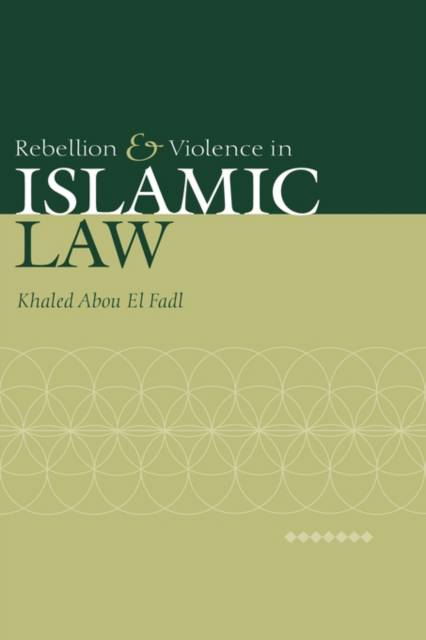
- Afhalen na 1 uur in een winkel met voorraad
- Gratis thuislevering in België vanaf € 30
- Ruim aanbod met 7 miljoen producten
- Afhalen na 1 uur in een winkel met voorraad
- Gratis thuislevering in België vanaf € 30
- Ruim aanbod met 7 miljoen producten
Zoeken
€ 234,95
+ 469 punten
Uitvoering
Omschrijving
Khaled Abou El Fadl's book represents the first systematic examination of the idea and treatment of political resistance and rebellion in Islamic law. Pre-modern jurists produced an extensive and sophisticated discourse on the legality of rebellion and the treatment due to rebels under Islamic law. The book examines the emergence and development of these discourses from the eighth to the fifteenth centuries, and considers juristic responses to the various terror-inducing strategies employed by rebels--including assassination, stealth attacks and rape. The study demonstrates how Muslim jurists went about restructuring several competing doctrinal sources in order to construct a highly technical discourse on rebellion. Indeed many of these rulings may have a profound influence on contempoary practices. This is an important and challenging book which sheds light on the complexities of Islamic law, and pre-modern attitudes to dissidence and rebellion.
Specificaties
Betrokkenen
- Auteur(s):
- Uitgeverij:
Inhoud
- Aantal bladzijden:
- 404
- Taal:
- Engels
Eigenschappen
- Productcode (EAN):
- 9780521793117
- Verschijningsdatum:
- 1/11/2001
- Uitvoering:
- Hardcover
- Formaat:
- Genaaid
- Afmetingen:
- 161 mm x 231 mm
- Gewicht:
- 771 g

Alleen bij Standaard Boekhandel
+ 469 punten op je klantenkaart van Standaard Boekhandel
Beoordelingen
We publiceren alleen reviews die voldoen aan de voorwaarden voor reviews. Bekijk onze voorwaarden voor reviews.








